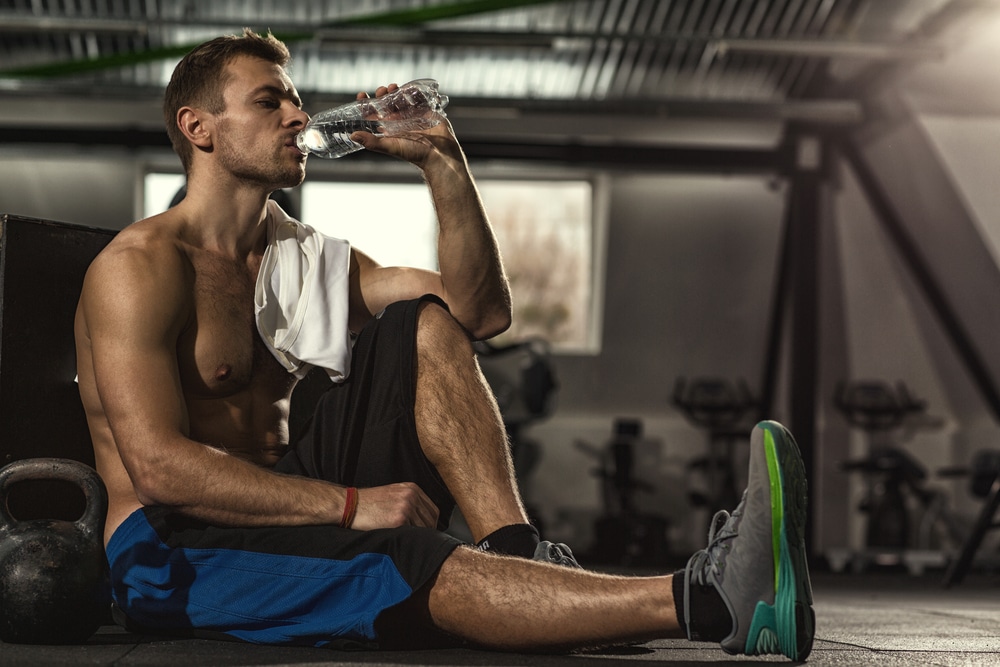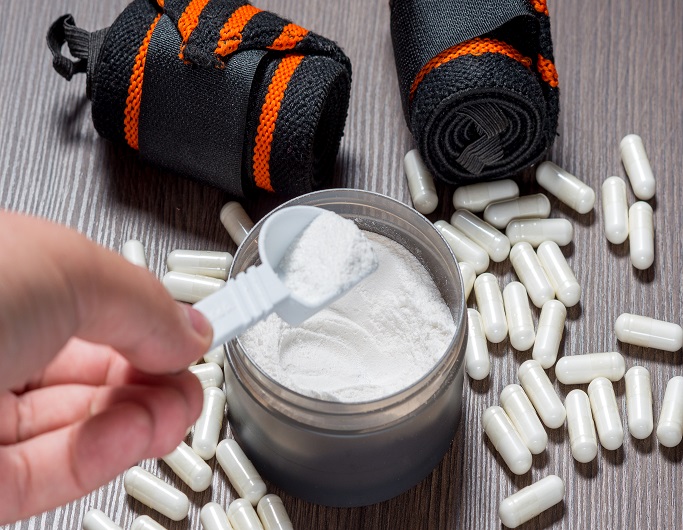
The Benefits Of Coffee
Coffee and coffee shops have become a favourite of ours these days, and for good reasons as I will share with you now. Travellers first brought coffee to Europe during the 17th century and since then it has become very popular. Coffee is consumed by many of the populace living in the ‘Blue Zones’; areas of the world where people live measurably longer lives compared to others, so why not include coffee in your life? Coffee not only tastes good but has many benefits along with being a powerful tool, if used correctly, for improving training and exercise.
Improved Energy Levels and Performance
Coffee can benefit training through improving physical performance. It has even been said that it should be put on the World Anti-Doping Agency monitoring program. The caffeine content of coffee wakes you up and makes you more alert, which makes it a great pre-workout or pre-race drink.
Caffeine has been shown to increase your adrenaline levels within the blood, (1,2) a hormone which is part of the ‘fight and flight’ response. This response prepares our body for intense physical activity by increasing our heart rate and the force of our heart contractions, dilating blood vessels, and causing the break down and release of fatty acids from our fat cells which are to be used for energy. (3,4) Because of this, caffeine has been shown to increase performance by up to 12%. (5)
Check out TPW Performance Caffeine, which could help you improve your performance.
It Can Aid With Weight Loss
Now, nothing is going to change the fact that to lose weight you need to be in a calorie deficit, created solely by eating less than you are burning or by adding in physical activity to increase your total daily expenditure.
But…
Some studies have shown caffeine to aid with releasing fat from your fat cells (6) and subsequent oxidation (7.) Even with an increase in fat oxidation (burning), you still need a calorie deficit to lose weight. You are always releasing and oxidising fat in between eating and storing during your post feeding window, however, it is the relationship between oxidation and storing – energy balance, that results in weight loss or gain. Caffeine has also been shown to increase your basal metabolic rate (8,9), bloody tiny may I add but it has been shown!
Hydration
Right ok, it obviously does not hydrate you like water does, but the water it does contain contributes to your hydration.
Lots of people believe drinking coffee dehydrates us and causes us to urinate more. It is true coffee is a diuretic and causes us to pee more when consumed in large amounts, but research has shown that in order for the diuretic properties of coffee to show you must be consuming in excess of 6-7 cups. (10) Another study compared hydration of individuals consuming water vs 4 cups of coffee. They found no differences in hydration between the individuals.
Coffee Contains Antioxidants and Nutrients
Antioxidants help protect the body from free radicals. Free radicals are highly reactive molecules that can cause oxidative DNA damage. Free radicals occur naturally, and our body has adapted to produce antioxidants that can manage free radicals easily. But, there are certain external factors that can trigger the production of more/extra free radicals. Antioxidants are found in many foods, including fruits and vegetables, but also in coffee.(13,14)
Not only does coffee contain water, but it contains tiny amounts of some micronutrients too –
Below you can see the quantity and DV% (Daily value in relation to their approximate requirement for the day.) (12)
Vitamins
Riboflavin 0.2mg 11%
Niacin 0.5mg 2%
Folate 4.7mg 1%
Pantothenic Acid 0.6mg 6%
Minerals
Magnesium 7.1mg 2%
Phosphorus 7.1mg 1%
Potassium 116mg 3%
Manganese 0.1mg 3%
However, there are some downsides!
Caffeine can stay in your body for a long time affecting your sleep which we know is essential for recovery and rest. Sleep increases levels of testosterone and IGF-1, both of which are essential for muscular growth. Sleep deprivation decreases these hormones and increases cortisol levels. Acute levels of cortisol, a stress hormone, due to training are normal and cause muscular adaptions to occur, but chronic levels inhibit muscular development and protein breakdown. (17)
Although moderate amounts of caffeine have been shown to have minor effects on long term cortisol levels (15,) there could be some individual variability. Chronic levels of increased cortisol, due to caffeine intake, could lead to chronic stress and cause disruption to your body’s processes.
More it not always beneficial, so do not think drinking 4 espressos before your workout is ‘optimal.’ Research has shown that chronic exposure to caffeine can lead to you becoming tolerant to the beneficial effects it has on performance and can decrease testosterone and increase cortisol. (15) Beneficial amounts have been shown to be in the range of 4-6mg per kg of bodyweight or 200-300mg of caffeine. (16) Bear in mind a normal coffee shop black coffee contains approximately 300mg.
And the last thing to avoid is regularly adding sugar, chocolate or cream. There obviously are situations when this is fine, but doing so can lead to your favourite drink containing lots of unknown calories, even 400+ calories. If you’re not careful this could lead to unwanted weight gain.
So enjoy your coffee, within the range of 3-4 black coffees a day, and reap the benefits of improved performance and alertness, fat burning and its antioxidant and nutrient content.
Further Reading –
http://examine.com/supplements/Caffeine/
References –
1. Anderson DE, Hickey MS. Effects of caffeine on the metabolic and catecholamine responses to exercise in 5 and 28 degrees C. Med Sci Sports Exerc. 1994 Apr;26(4):453-8.
2. Gerben B. Keijzers, MD, Bastiaan E. De Galan, MD, Cees J. Tack, MD and Paul Smits, MD. Caffeine Can Decrease Insulin Sensitivity in Humans. Diabetes Care February 2002vol. 25 no. 2 364-369
3. Patwardhan RV, Desmond PV, Johnson RF, Dunn GD, Robertson DH, Hoyumpa AM Jr, Schenker S. Effects of caffeine on plasma free fatty acids, urinary catecholamines, and drug binding. Clin Pharmacol Ther. 1980 Sep;28(3):398-403.
4. Samuel Bellet, Alfred Kershbaum, E.Michael Finck Response of free fatty acids to coffee and caffeine . Metabolism, Volume 17, Issue 8, August 1968, Pages 702–707.
5. Doherty M, Smith PM. Effects of caffeine ingestion on exercise testing: a meta-analysis. Int J Sport Nutr Exerc Metab. 2004 Dec;14(6):626-46.
6. Kevin J Acheson, Gerard Gremaud, Isabelle Meirim, Franck Montigon, Yves Krebs, Laurent B Fay, Louis-Jean Gay, Philippe Schneiter, Charles Schindler, and Luc Tappy. Metabolic effects of caffeine in humans: lipid oxidation or futile cycling? Am J Clin Nutr January 2004 vol. 79 no. 1 40-46
7. D. Bracco , J. M. Ferrarra , M. J. Arnaud , E. Jequier , Y. Schutz. Effects of caffeine on energy metabolism, heart rate, and methylxanthine metabolism in lean and obese women. American Journal of Physiology – Endocrinology and MetabolismPublished 1 October 1995Vol. 269no. 4,E671-E678
8. Koot P, Deurenberg P. Comparison of changes in energy expenditure and body temperatures after caffeine consumption. Ann Nutr Metab. 1995;39(3):135-42.
9. AG Duioo, CA Geissler, THorton, A Collins, and DSMiller Normal caffeine consumption: influence on thermogenesis and daily energy expenditure in lean and postobese human volunteers. 44 Am i C/in Nuir l989;49:44-S0.
10. Neuhauser-Berthold, Beine S, Verwied SC, Luhrmann PM. Coffee consumption and total body water homeostasis as measured by fluid balance and bioelectrical impedance analysis. Ann Nutr Metab. 1997;41(1):29-36.
11. Killer SC, Blannin AK, Jeukendrup AE. No evidence of dehydration with moderate daily coffee intake: a counterbalanced cross-over study in a free-living population. PLoS One. 2014 Jan 9;9(1):e84154.
12. http://nutritiondata.self.com/facts/beverages/3898/2
13. Pulido R, ,Hernandez-Garcia M Saura-Calixto F. Contribution of beverages to the intake of lipophilic and hydrophilic antioxidants in the Spanish diet. Eur J Clin Nutr. 2003 Oct;57(10):1275-82.
14. Richelle M, Tavazzi I, Offord E. Comparison of the antioxidant activity of commonly consumed polyphenolic beverages (coffee, cocoa, and tea) prepared per cup serving. J Agric Food Chem. 2001 Jul;49(7):3438-42.
15. Beaven CM, Hopkins WG, Hansen KT, Wood MR, Cronin JB, Lowe TE. Dose effect of caffeine on testosterone and cortisol responses to resistance exercise. Int J Sport Nutr Exerc Metab. 2008 Apr;18(2):131-41.
16. Desbrow B, Biddulph C, Devlin B, Grant GD, Anoopkumar-Dukie S, Leveritt MD. The effects of different doses of caffeine on endurance cycling time trial performance. J Sports Sci. 2012;30(2):115-20.
17. Dattilo M, Antunes HK, Medeiros A, Monico Neto M, Souza HS, Tufik S, de Mello MT. Sleep and muscle recovery: endocrinological and molecular basis for a new and promising hypothesis. Med Hypotheses. 2011 Aug;77(2):220-2.






No Comments yet!